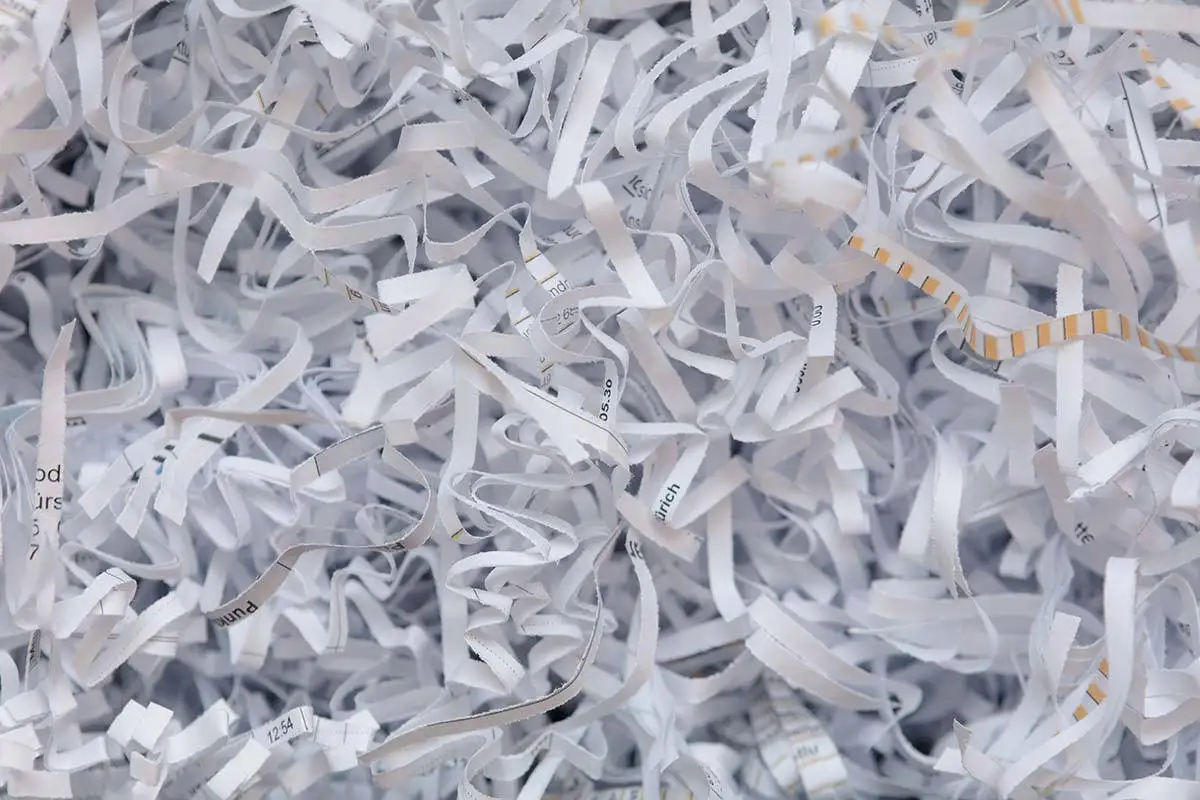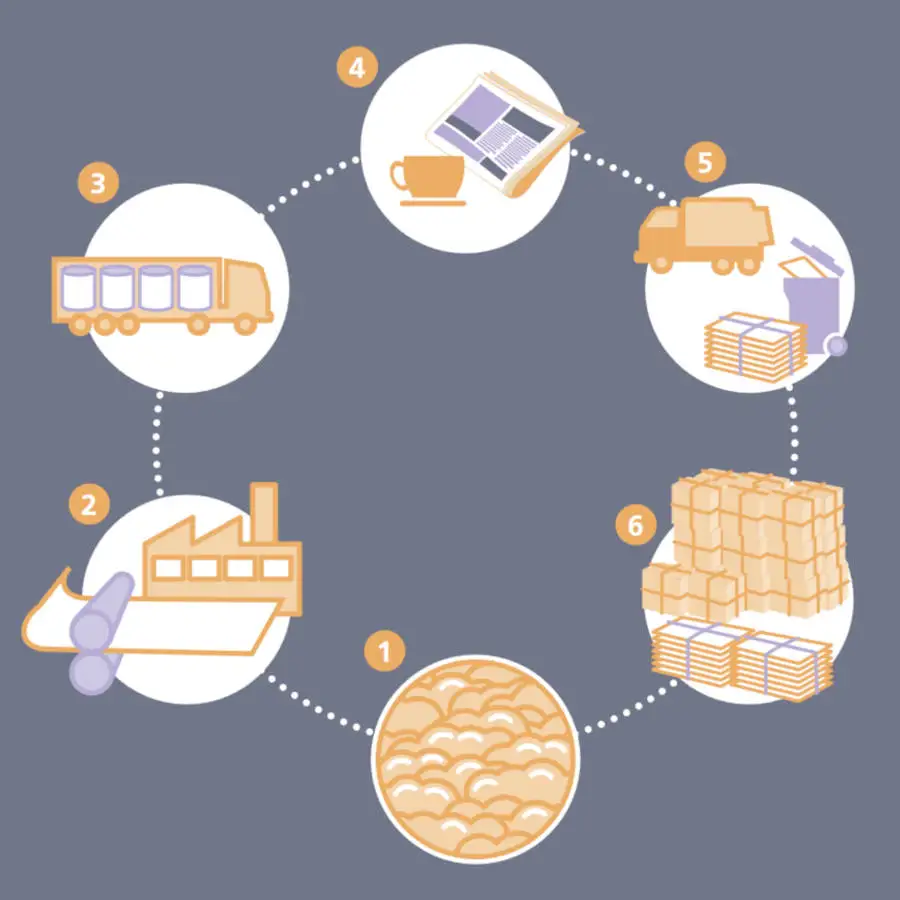
Paper and cardboard are raw materials and not waste. By improving machine and paper quality, the proportion of waste paper / cardboard in the various types of paper and cardboard has been steadily increased. A fiber can go through several recycling processes.
This is what the paper and cardboard cycle looks like:
Collection
Paper and cardboard are collected and in many places even picked up on the doorstep.Transportation
The recyclables are collected and transported to the nearest sorting center or directly to the paper or cardboard factory.Sorting and pressing
There, the recyclable materials are first sorted by hand or by machine and then partly compressed into standard bales, mainly cardboard
Dissolving the fibers / removing the ink
The cardboard and paper are then mixed with water in the pulper to create a pulpy mixture that is easy to shape and separate.
In the case of paper, the printing ink is also removed afterwards (deinking process) so that the paper has the appropriate degree of whiteness.
Paper machine
The paper pulp, which has been cleaned, coated and smoothed, is rolled onto a large reel.Processing
The recycled cardboard and recycled paper can now be reused. For example, new cardboard boxes, newsprint and shop window decorations are made from it.Correct separation
What belongs in which collection – and what doesn’t
Paper
All types of paper (including glossy paper), newspapers, magazines and brochures without coating, books without covers, envelopes from household collections (including with windows)
Cardboard box
Uncoated cardboard, clean egg, fruit and vegetable cartons, clean pizza boxes, folders (without metal parts), paperback books, telephone books, empty detergent cartons, paper carrier bags, large quantities of envelopes (industrial waste), shredded material from document shredders and sugar and gelling sugar bags
Do not put in the paper or cardboard collection:
Baking paper, flower paper, coated paper and cardboard with thin plastic film, photo books, food bags, soup bags, frozen food boxes, soiled cardboard, wet-strength paper, butcher’s paper (silicone paper), napkins, plastic-coated paper, beverage cartons (Tetrapak), adhesive labels or tapes, foreign materials such as polystyrene or metal.

Recycling process
of Perlen Papier AG
- Preparation of waste paper
Recovery and cleaning of the paper base material for production. A newspaper can be recycled around 7 times. - Paper machine
PM7 360,000 tons of newsprint paper per year, PM4 200,000 tons of magazine paper per year - New newsprint
Waste paper content: newsprint 85-100%, magazine paper 55% - Your newspaper
on the breakfast table on time Collecting and recycling waste paper is an active contribution to environmental protection. - Collecting in the community
60 kilograms of waste paper per inhabitant per year - Ecological recycling of waste paper
We recycle 1300 tons of waste paper per day (480,000 tons per year)
